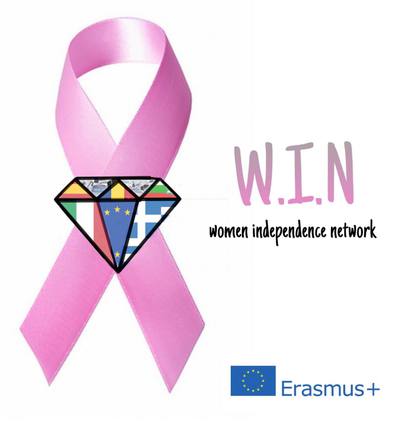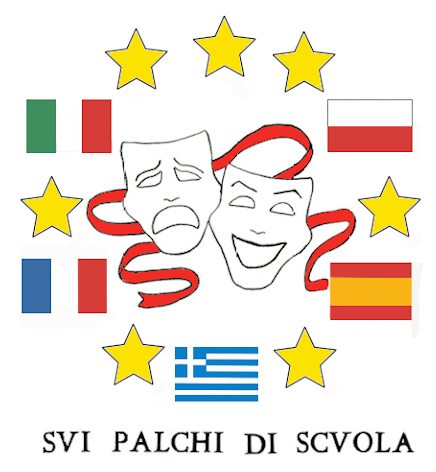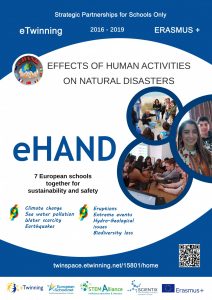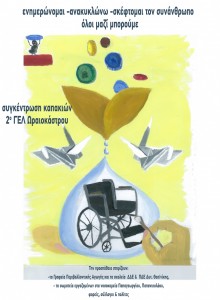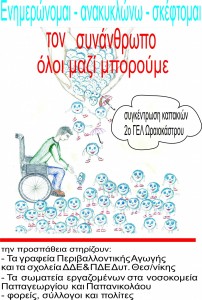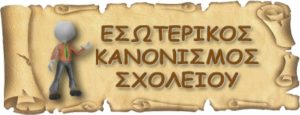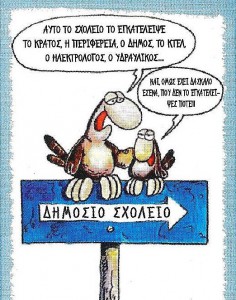Στο πλαίσιο της Παγκόσμιας Ημέρας Θεάτρου, την 27η Μαρτίου 2021, τα σχολεία που συμμετέχουν στο πρόγραμμα “Sui Palchi di Scuola”, αποφάσισαν την υλοποίηση μιας διαδικτυακής δράσης με τίτλο “The Words of Theatre” Έτσι οι εκπαιδευτικοί και μαθητές του σχολείου μας, του 2ου ΓΕΛ Ωραιοκάστρου, που συμμετέχουν στο παραπάνω πρόγραμμα, συναντήθηκαν διαδικτυακά για την πραγματοποίηση αυτής της δράσης.
Τα παιδιά ήταν ευδιάθετα και χαρούμενα γιατί εν μέσω πανδημίας κατάφεραν και επικοινώνησαν με τους φίλους και συμμαθητές τους, εκτός των ωρών μαθήματος. Οι μαθητές αφού ενημερώθηκαν για τον τρόπο που θα υλοποιηθεί η δράση, αυτοσχεδίασαν . Τέθηκε το ερώτημα «τι είναι το θέατρο για εσάς;» και οι μαθητές έπρεπε να σκεφτούν μία λέξη, να την αποδώσουν και να την παρουσιάσουν με παντομίμα. Οι μαθητές ακολουθώντας τον αυθορμητισμό και τη φαντασία τους, απέδωσαν με κίνηση σημαντικές έννοιες όπως ελευθερία, επικοινωνία, δημιουργία, προβληματισμός, χαρά, τραγωδία, κωμωδία…
Οι μαθητές απόλαυσαν το θεατρικό παιχνίδι και εκφράστηκαν θετικά για αυτό. Ακολούθησε συζήτηση για την Παγκόσμια Ημέρα του Θεάτρου, οι μαθητές υποστήριξαν ότι το θέατρο είναι μια ζωντανή μορφή τέχνης, πολύ εκφραστική και επικοινωνιακή αφού συμβάλλει στην προσέγγιση και συνύπαρξη των εφήβων.
Μέσα από τη θεατρική τέχνη εντοπίζουν αξίες και έννοιες που προβληματίζουν τους σύγχρονους νέους και ταυτόχρονα ανακαλύπτουν νέες προοπτικές για την επίλυση σημαντικών θεμάτων.
Στο τέλος της δράσης διάβασαν τον Αριστοτελικό ορισμό της τραγωδίας
Erasmus Project “Sui Palchi di Scuola”
LICEO CAGNAZZI – Coordinator
LICEO PEPE CALAMO – OSTUNI – Partner
LYCEE AUBRAC – PARIS – Partner
I LICEUM OGOLNOKSZTALCACE – SZECIN – Partner
2nd GENERAL LYCEUM OF OREOKASTRO – Partner
I.E.S JIMÉNEZ DE LA ESPADA- CARTAGENA – Partner
As part of World Theater Day, on March 27, 2021, the schools participating in the “Sui Palchi di Scuola” Erasmus project, decided to implement an online activity “The Words of Theatre”. Thus, the teachers and students of our school, of the 2nd General Lyceum of Oreokastro, who participate in the above program, met to carry out this action.
The children were cheerful and happy because in the midst of a pandemic they managed to communicate with their friends and classmates, outside of class hours. The students, after being informed about the way the activity will be implemented, improvised. The question was “what is theater for you?” and the students had to think of a word, render it and present it in a pantomime. The students, following their spontaneity and imagination, gave important concepts such as freedom, communication, creation, reflection, joy, tragedy, comedy …
The students enjoyed the theatrical play and expressed themselves positively about it. Following a discussion on World Theater Day, the students argued that theater is a living art form, very expressive and communicative as it contributes to the approach and coexistence of adolescents.
Through theatrical art, they identify values and concepts that concern modern youth and at the same time discover new perspectives for solving important issues.
At the end of the action they read the Aristotelian definition of tragedy
Χαιρετισμός της εκδήλωσης απο την καθηγήτρια – φιλόλογο κ Ανατολή Γκαγκοπούλου,
(μέλος της ομάδας Erasmus του 2ου ΓΕΛ Ωραιοκάστρου)
The COVID-19 pandemic has brought the global theater industry to a standstill. But this is not the first time that the industry has faced an existential crisis. The theater community has confronted acts of terror, but theatre has innovated and emerged stronger. Make no mistake: Global theater is hurting right now.
-But do we need theatre right now? as Anatoli Vassiliev asked. — Oh yes! We need every kind of theatre to encourage us and give us hope and strength to continue.
There is only one theatre which is surely not needed by anyone – I mean a theatre of political games, a theatre of a political “mousetraps…What we certainly do not need is a theatre of daily terror – whether individual or collective, what we do not need is the theatre of corpses and blood on the streets and squares, in the capitals or in the provinces, a phony theatre of clashes between religions or ethnic groups.”
“It’s our job to try to make the future a better place,” Oscar Eustis says. “It’s our job to try to make the theater more democratic, more inclusive, more accessible, more anti-racist. That’s what we’ve got to do after this pandemic and we are optimistic that we’ll be able to continue doing that.”
The show must go on!
Πεερισσότερα για την εκδήλωση στην παρακάτω διεύθυνση
https://www.facebook.com/Sui-Palchi-di-scuola-Erasmus-Plus-ka-229-104527878393109/?ref=page_internal





